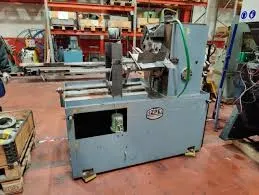
-
 Afrikaans
Afrikaans -
 Albanian
Albanian -
 Amharic
Amharic -
 Arabic
Arabic -
 Armenian
Armenian -
 Azerbaijani
Azerbaijani -
 Basque
Basque -
 Belarusian
Belarusian -
 Bengali
Bengali -
 Bosnian
Bosnian -
 Bulgarian
Bulgarian -
 Catalan
Catalan -
 Cebuano
Cebuano -
 Corsican
Corsican -
 Croatian
Croatian -
 Czech
Czech -
 Danish
Danish -
 Dutch
Dutch -
 English
English -
 Esperanto
Esperanto -
 Estonian
Estonian -
 Finnish
Finnish -
 French
French -
 Frisian
Frisian -
 Galician
Galician -
 Georgian
Georgian -
 German
German -
 Greek
Greek -
 Gujarati
Gujarati -
 Haitian Creole
Haitian Creole -
 hausa
hausa -
 hawaiian
hawaiian -
 Hebrew
Hebrew -
 Hindi
Hindi -
 Miao
Miao -
 Hungarian
Hungarian -
 Icelandic
Icelandic -
 igbo
igbo -
 Indonesian
Indonesian -
 irish
irish -
 Italian
Italian -
 Japanese
Japanese -
 Javanese
Javanese -
 Kannada
Kannada -
 kazakh
kazakh -
 Khmer
Khmer -
 Rwandese
Rwandese -
 Korean
Korean -
 Kurdish
Kurdish -
 Kyrgyz
Kyrgyz -
 Lao
Lao -
 Latin
Latin -
 Latvian
Latvian -
 Lithuanian
Lithuanian -
 Luxembourgish
Luxembourgish -
 Macedonian
Macedonian -
 Malgashi
Malgashi -
 Malay
Malay -
 Malayalam
Malayalam -
 Maltese
Maltese -
 Maori
Maori -
 Marathi
Marathi -
 Mongolian
Mongolian -
 Myanmar
Myanmar -
 Nepali
Nepali -
 Norwegian
Norwegian -
 Norwegian
Norwegian -
 Occitan
Occitan -
 Pashto
Pashto -
 Persian
Persian -
 Polish
Polish -
 Portuguese
Portuguese -
 Punjabi
Punjabi -
 Romanian
Romanian -
 Russian
Russian -
 Samoan
Samoan -
 Scottish Gaelic
Scottish Gaelic -
 Serbian
Serbian -
 Sesotho
Sesotho -
 Shona
Shona -
 Sindhi
Sindhi -
 Sinhala
Sinhala -
 Slovak
Slovak -
 Slovenian
Slovenian -
 Somali
Somali -
 Spanish
Spanish -
 Sundanese
Sundanese -
 Swahili
Swahili -
 Swedish
Swedish -
 Tagalog
Tagalog -
 Tajik
Tajik -
 Tamil
Tamil -
 Tatar
Tatar -
 Telugu
Telugu -
 Thai
Thai -
 Turkish
Turkish -
 Turkmen
Turkmen -
 Ukrainian
Ukrainian -
 Urdu
Urdu -
 Uighur
Uighur -
 Uzbek
Uzbek -
 Vietnamese
Vietnamese -
 Welsh
Welsh -
 Bantu
Bantu -
 Yiddish
Yiddish -
 Yoruba
Yoruba -
 Zulu
Zulu
Hydraulic Thread Rolling Machine Cost and Leading Manufacturers in the Industry
The Hydraulic Thread Rolling Machine A Valuable Asset in Manufacturing
In the realm of modern manufacturing, precision and efficiency are paramount. One of the essential tools that has been gaining prominence in industries requiring threaded components is the hydraulic thread rolling machine. This specialized equipment offers numerous advantages over traditional thread cutting methods, making it a sought-after investment for manufacturers worldwide.
What Is a Hydraulic Thread Rolling Machine?
A hydraulic thread rolling machine is designed to create threads on a variety of materials by deforming them rather than cutting. The process involves rolling a workpiece between two or more rotating dies, which form the desired thread shape through pressure and deformation. The hydraulic system provides the necessary force for the rolling process, allowing for consistent and precise thread formation.
Advantages of Hydraulic Thread Rolling Machines
1. Enhanced Strength and Durability One of the primary benefits of using a hydraulic thread rolling machine is the strength of the final product. The rolling process compresses the material, which increases its tensile strength, leading to threads that are more robust and less prone to wear and tear compared to those produced by cutting methods.
2. Higher Production Efficiency Hydraulic machines can significantly enhance production speeds. The continuous rolling process allows for the production of large volumes of threaded components within a shorter timeframe. This increased efficiency can lead to substantial cost savings for manufacturers, making it an attractive option for large-scale production.
3. Improved Surface Finish Thread rolling produces threads with superior surface finishes. The process generates less friction than cutting, which means that the external surface of the rolled threads is smoother. This not only improves the aesthetic quality of the components but also reduces the need for further finishing processes.
hydraulic thread rolling machine price manufacturer

4. Reduced Material Waste Unlike traditional cutting methods, which remove material to create threads, thread rolling conserves material by reshaping it. This reduction in scrap contributes to more sustainable manufacturing practices and lowers material costs for manufacturers.
5. Versatility Hydraulic thread rolling machines are capable of working with various materials, including steel, aluminum, and plastics. Additionally, they can be used to create a wide range of thread types and sizes, making them versatile tools for different manufacturing needs.
Pricing Considerations for Manufacturers
When considering the acquisition of a hydraulic thread rolling machine, manufacturers should factor in various pricing elements. The cost can vary significantly based on the machine's specifications, such as its capacity, size, and the complexity of the threading features it offers. Additionally, manufacturers should consider the brand reputation, customer service, and warranty options of the machine supplier.
Investing in a quality hydraulic thread rolling machine may initially demand a higher capital outlay, but the long-term benefits, including increased productivity and reduced operational costs, can lead to a favorable return on investment. Manufacturers are encouraged to conduct thorough market research and compare different manufacturers to find a machine that best fits their specific needs and budget.
Conclusion
The hydraulic thread rolling machine represents a significant advancement in thread manufacturing technology. Its ability to produce high-strength, precisely dimensioned threads with minimal waste makes it a valuable tool for any manufacturer looking to enhance their production capabilities. As industries continue to evolve and prioritize efficiency and sustainability, the role of hydraulic thread rolling machines is likely to become even more important in the manufacturing landscape. Investing in such a machine not only ensures competitiveness but also paves the way for future growth and innovation.
